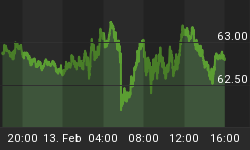In the midst of highly unpopular bailouts of Wall Street, many justifications have been given about why Washington feels the need to act. Some claim that capitalism and the free market are to blame, but we have not had capitalism. If you compare our financial capital to our aggregate debt, this would be obvious. In the same way, we have not had a truly free market. The monetary manipulations of the Federal Reserve, a complex tax code, the many "oversight" agencies and their mountains of regulations show that we are far removed from a free market economy.
Another unsatisfying argument is that certain entities have to be bailed out because of their economic importance. Supposedly, some entities can be so big, so important, that no matter what they do, citizens must perpetually sustain them.
Even limited government has a basic duty to defend against force and fraud. Some argue that force is somehow permissible just because the entity engaging in it is "economically significant." But one could use this reasoning to prop up slavery. It could be deemed unfortunate but economically beneficial, and indeed these arguments have been used historically to deprive people of their liberty. But slavery should never be tolerated regardless of any economic benefit, just as systemic fraud should not be tolerated. Some banks on Wall Street should fail. Fannie and Freddie should fail. They are perpetrating fraud against the people. Yet, government insists on rewarding behavior which should instead be investigated, prosecuted, and punished.
There has been much evidence of fraud at Fannie and Freddie, but when one man, Franklin Raines, defrauded the organization out of millions of dollars through illegal accounting tricks, and ends up agreeing to pay back just a fraction, one could argue that it was well worth it to him. Fannie went on to only get more deeply involved in subprime mortgages after this investigation. Several organizations are suffering right now precisely because the free market is trying to work and punish mismanagement, if only the government would get out of the way and let it. Perhaps banks are not lending to each other because they know that complicated accounting standards, created in part to defend against confiscatory tax policy, enables false fiscal pictures to be presented, which erodes trust. But this is not a time for the government to step in with more burdensome and complicated regulations, or more foolish liquidity injections. This is a time for some banks to fail, and remaining banks to deal honestly and transparently once again. More regulations will only result in more lies.
Just as economies that turned away from slave labor had a transition period, our economy would transition as well, but in the end, if we turned to honest, sound money and a truly free market, we would end up with a more just society, founded on truthfulness and decency, not subject to the violence of force or the whims of fraudulent institutions. Unfortunately, it seems we are headed into a new era of slavery, however, where all taxpayers will be forced to render to the Fed and big banking interests the bulk of the fruits of their labor, possibly through higher taxes but definitely through the eroding force of inflation.
















